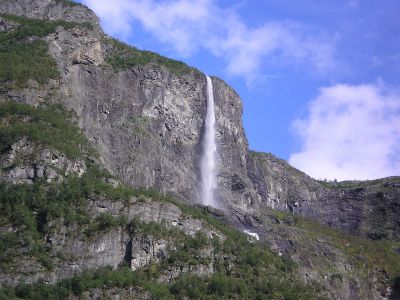Scarcity of fresh water is of growing concern in the Mediterranean area due to urbanisation, irrigation and changing rainfall patterns. The influx of millions of Sun-seeking tourists puts even more pressure on limited water resources during the summer season.
Large seasonal fluctuations in water demand in geographically isolated
areas mean an innovative and affordable way is needed to transport in
bulk large quantities of fresh water. The project 'Bringing a modular
technology for fresh water sea-transportation to full scale' (
XXL-REFRESH) will help transport fresh water from water-rich to water-poor areas by sea using modular flexible barges.
Project partners are building on earlier 'waterbag' technology, but using a new approach that is not based on a train of sealed containers or a single huge unit. Instead, researchers are developing large textile water-storing containers that can be joined together using extremely strong waterproof zip fasteners.
The capacity of the system can therefore be simply increased by joining together a number of the textile modules. An online monitoring system based on wireless communication will also check on container deformation during their use.
Field tests were carried out in Greece using a medium-scale (200 cubic metres) prototype, which proved that the new design can solve all the technical issues. The consortium is now developing a new full-scale system of 5 000 cubic metre capacity. This will be validated in 2015 during a test voyage from Turkey's Manavgat River to Cyprus.
The new waterbag system will help to ensure a regular supply of water to small and medium-sized communities. It can also be used to provide water as part of an emergency response to drought or other natural disasters.
Water is currently transported using tankers, which are expensive to operate. Project partners aim to deliver the same service, in some cases at as little as half the cost, and with lower environmental impacts.
XXL-REFRESH is not intended to compete with desalination plants. Rather, it will supply those areas where a desalination plant is not economically feasible or a large supply of electric power to run it is not available.

